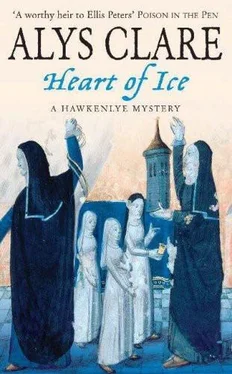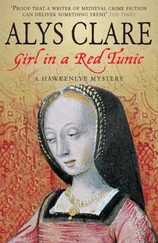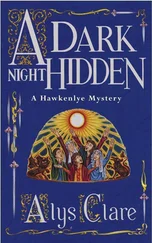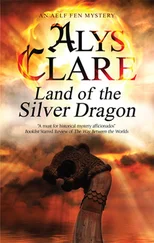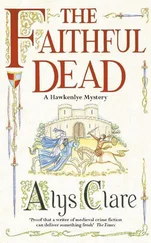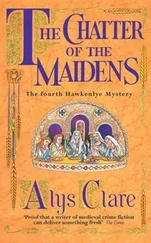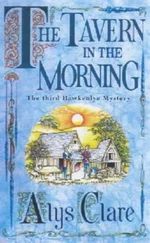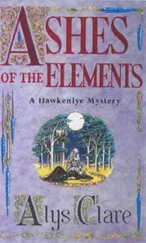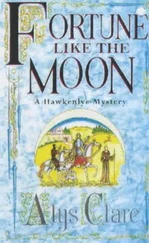Alys Clare - Heart of Ice
Здесь есть возможность читать онлайн «Alys Clare - Heart of Ice» весь текст электронной книги совершенно бесплатно (целиком полную версию без сокращений). В некоторых случаях можно слушать аудио, скачать через торрент в формате fb2 и присутствует краткое содержание. Год выпуска: 2007, Издательство: Hachette Littlehampton, Жанр: Исторический детектив, на английском языке. Описание произведения, (предисловие) а так же отзывы посетителей доступны на портале библиотеки ЛибКат.
- Название:Heart of Ice
- Автор:
- Издательство:Hachette Littlehampton
- Жанр:
- Год:2007
- ISBN:нет данных
- Рейтинг книги:4 / 5. Голосов: 1
-
Избранное:Добавить в избранное
- Отзывы:
-
Ваша оценка:
- 80
- 1
- 2
- 3
- 4
- 5
Heart of Ice: краткое содержание, описание и аннотация
Предлагаем к чтению аннотацию, описание, краткое содержание или предисловие (зависит от того, что написал сам автор книги «Heart of Ice»). Если вы не нашли необходимую информацию о книге — напишите в комментариях, мы постараемся отыскать её.
Heart of Ice — читать онлайн бесплатно полную книгу (весь текст) целиком
Ниже представлен текст книги, разбитый по страницам. Система сохранения места последней прочитанной страницы, позволяет с удобством читать онлайн бесплатно книгу «Heart of Ice», без необходимости каждый раз заново искать на чём Вы остановились. Поставьте закладку, и сможете в любой момент перейти на страницу, на которой закончили чтение.
Интервал:
Закладка:
But she was not looking shocked or frightened; she was staring at him with kindness and compassion in her eyes. He thought about how strange she had seemed, how detached. And then he thought about the body on the cot, covered carefully right up to the forehead. And about the barrier that had been erected across the entrance to the recess where the dead man lay.
‘This was no surprise,’ he said wonderingly. ‘You already knew the dead man was suffering from the pestilence. Didn’t you?’
And yet you brought me here, he wanted to shout, led me right up to where the victim lay and deliberately kept me in ignorance as to what killed him!
But he kept the flare of anger under control. And he thought, no, that is not right; the pestilence did not kill him, for the man was murdered.
The Abbess seemed to be waiting until his train of thought ran its course. When at last she spoke, it was to say, ‘Sir Josse, it is true that I suspected. Sister Euphemia told me today that when she studied the dead man’s body last night there were signs of a rash, although when she looked again first thing this morning, it had faded. Now we cannot say for sure what the sickness was, for, as Sister Euphemia points out, many diseases bring spots and not all are fatal.’
Josse tried to cheer himself up by trying to think of a few non-fatal rash-producing diseases but the attempt was a dismal failure. ‘Were there-’ He started again. ‘Did the infirmarer observe any other marks on the body to suggest the pestilence?’
The Abbess shook her head. ‘Not those that I suspect you have in mind. The eyes were bloodshot and inflamed; there were strange spots inside the mouth.’ She put out her hand and briefly touched Josse’s arm. ‘No black swellings,’ she said softly. ‘Thank the Lord.’
‘Amen,’ Josse said fervently.
For some time there was silence in the herbalist’s hut. Then Sister Tiphaine spoke. ‘I would suggest,’ she said slowly, ‘that a dead man with the pestilence in his body is less of a danger than a living one. Unless you’re planning on eating him,’ she added, quite mystifying Josse, who could not see the relevance of the remark.
Neither, it seemed, could the Abbess. With a look of faint distaste at Sister Tiphaine — who noticed and, observed by Josse but not by the Abbess, gave a quick grin — she pointed at the contents of the little bag and said, ‘Where, Sister, do you think the victim could have acquired this remedy?’
Sister Tiphaine began gathering the ingredients together, pushing them carefully back into the bag. ‘Not from some village wise woman, that’s for sure,’ she said, ‘for there are things here that even Hawkenlye Abbey doesn’t keep.’
‘But we have to be careful to-’ the Abbess began, apparently sensing a criticism. Then she stopped. ‘Please, Sister,’ she said majestically, ‘go on.’
‘My lady, the things I refer to are not necessarily the costly items,’ the infirmarer said gently, ‘although for sure I would hesitate to use as much myrrh as this in any remedy unless I could be sure of getting my hands on some more. Wasteful, I call it,’ she added in a mutter. ‘I was thinking of the vervain.’ With a swift look at Josse — which he failed to understand just as thoroughly as he had done the Sister’s remark about eating bodies — she said, ‘I could understand the vervain if this were a potion produced by the Forest Folk, but it isn’t. I can be quite certain of that because they don’t use mandrake.’
‘Ah, I see,’ the Abbess said. ‘You mean that vervain is not used at Hawkenlye because of its magical associations?’
‘Aye. Which I reckon suggests our dead man wasn’t given his remedy in any convent or monastery.’
‘Where, then?’ asked Josse.
‘I would say that this’ — Sister Tiphaine held up the little bag, whose neck she had tied up with a length of string — ‘was purchased from an apothecary. A good one, I’d say, and probably an expensive one. No man would put so much mandrake and myrrh in a potion and then give it away.’
Asking the question more in hope than expectation, Josse said, ‘Do you know of such an apothecary hereabouts, Sister?’ The infirmarer shook her head. ‘And what of you, my lady?’
‘No,’ the Abbess said reluctantly. ‘I have never consulted an apothecary and I would not even know how to go about finding one. What shall we do, Sir Josse?’
Feeling at that moment quite bereft of any sensible suggestions, Josse held his peace. Then gradually an image began to form itself in his mind: a dead body on a narrow cot, a vicious, crushing blow in its skull.
The man carried nothing with which we might identify him, Josse thought, except for this little remedy in its cloth bag. Sister Tiphaine, bless her for her skill, has told us far more about it that I for one could have hoped for, including the very useful fact that it was put together by a master in the apothecary’s art. None out of the three of us knows of such a man, but this man, whoever he is, must be located because, once shown the remedy, he will be able to tell us for whom it was prescribed.
Or at least let us hope that he will. .
‘My lady,’ Josse said, with more confidence that he felt, ‘we must, I believe, await the arrival of Gervase de Gifford. We shall ask him whether there is a skilled apothecary in Tonbridge or anywhere else in the vicinity, and if such a man exists and cannot help us, then we must broaden our search until the right man is found. Then we will. .’
‘. . ask the identity of the man for whom he prescribed this potion so that, provided the purchaser did not give the potion to someone else, we shall then be able to put a name to our dead man,’ the Abbess finished for him. ‘Yes, Sir Josse, I fully understand your reasoning.’
Of course she did. ‘Aye, my lady.’
But, as they thanked Sister Tiphaine and left her to her bunches of rosemary, Josse wondered if the Abbess had extended that reasoning as far as he had. What he was thinking was that being given the dead man’s name and circumstances was a very good start in discovering who had killed him.
And why.
Gervase de Gifford arrived shortly after Josse and Helewise had returned to her room. Helewise experienced a moment’s regret; she had hoped for a few moments alone with Josse in which to apologise for having summoned him into danger. She also had the feeling that she had been distracted when he knocked on her door and wanted to explain that it had not been through any lack of pleasure at seeing him again; quite the contrary.
It had been simple fear.
She asked Josse to describe to de Gifford what had happened, which he did. There was a brief pause while de Gifford assimilated the information, then he said, ‘My lady, it would seem that if there is even a remote possibility that the dead man carries the pestilence, then the sooner he is buried, the better.’
‘I agree,’ she said. ‘Do you wish to view the body, Sheriff de Gifford?’
De Gifford looked at Josse. ‘Is there anything that I should see?’
‘There is but the one wound, to the top of the head. Done, I would suggest, with a club or something of the type. Other than that. .’
‘My lady, I take it that your infirmarer has examined the corpse?’ De Gifford asked.
‘She has.’
‘Then I bow to her medical skill and Sir Josse’s knowledge of killing blows. I will not view the body’ — Helewise had to admire his judgement — ‘and, if I may make a suggestion, it is that the dead man be buried by those who have already come into contact with the body.’
‘You make sound sense,’ Josse said.
‘Indeed,’ Helewise agreed. ‘We cannot say whether or not there is a risk of infection, but let us assume that there is and take what measures we may to contain its spread.’ She got to her feet. ‘I shall send word to Father Gilbert. The dead man will be buried today.’
Читать дальшеИнтервал:
Закладка:
Похожие книги на «Heart of Ice»
Представляем Вашему вниманию похожие книги на «Heart of Ice» списком для выбора. Мы отобрали схожую по названию и смыслу литературу в надежде предоставить читателям больше вариантов отыскать новые, интересные, ещё непрочитанные произведения.
Обсуждение, отзывы о книге «Heart of Ice» и просто собственные мнения читателей. Оставьте ваши комментарии, напишите, что Вы думаете о произведении, его смысле или главных героях. Укажите что конкретно понравилось, а что нет, и почему Вы так считаете.
